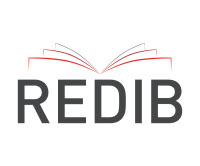Crenças, atitudes linguísticas e ensino: um olhar sobre o romance "Maria Dusá", de Lindolfo Rocha
DOI:
https://doi.org/10.21680/1517-7874.2023v25n1ID29788Abstract
The purpose of this paper is to present a brief investigation and analysis, through a questionnaire of linguistic beliefs and attitudes, of how students in the 6th grade of elementary school and students in the 1st grade of high school think and evaluate the Portuguese language and its variations, as well as the teaching of mother tongue through literary works that cover a colloquial and regionalist language, in this case, the novel Maria Dusá. As a theoretical and methodological basis, we rely mainly on the assumptions of Variationist Sociolinguistics, led by Labov's studies ([1972] 2008) and on the studies on linguistic beliefs and attitudes by Lambert and Lambert (1972); Santos (1996); Moreno Fernández; (1998); López Morales (1993); Corbari (2012), among others, as well as Educational Sociolinguistics, based on Bagno (2007, 2008); Marques and Baronas (2015); Cyranka (2015, 2016); Pinto and Ribeiro (2018). Thus, we believe that this research contributes to the sociolinguistic mapping of Brazilian Portuguese and to the development of educational policies that provide a reflective, critical and investigative teaching in the classroom, considering the heterogeneity of the language and its dynamics.
Keywords: Beliefs. Linguistic Attitudes. Teaching. Maria Dusá.
Downloads
Downloads
Published
How to Cite
Issue
Section
License
Copyright (c) 2023 Revista do GELNE

This work is licensed under a Creative Commons Attribution-NonCommercial-ShareAlike 4.0 International License.

Este trabalho foi licenciado com uma Licença Creative Commons - Atribuição - NãoComercial - CompartilhaIgual 3.0 Não Adaptada.

 Português (Brasil)
Português (Brasil) English
English Español (España)
Español (España)









.jpg)




